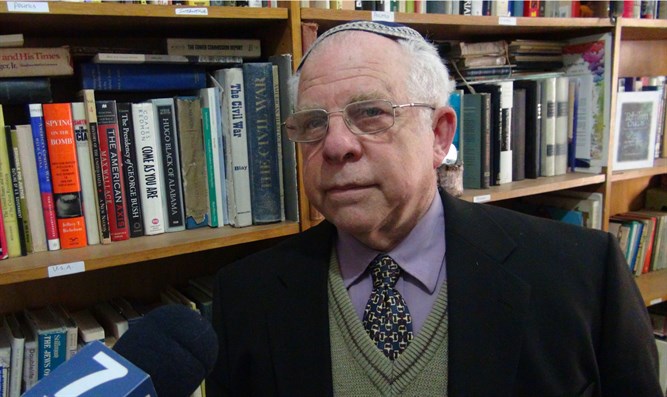
David Bedein, the head of the Center for Near East Policy Research, spoke to Arutz Sheva about the late Arizona Senator John McCain, who passed away on Saturday after a year-long battle with brain cancer, and of the US administration’s rejection of the so-called ‘Palestinian right of return.’
“Ten years ago, exactly, I had the opportunity to meet Senator McCain when Noam Bedein (Bedein’s son and the head of the Sderot Media Center) organized a briefing for Senator McCain in Sderot when he was running for president. And he brought him to a house which had been destroyed by missiles,” Bedein said.
“I came down there as the correspondent for the Philadelphia Bulletin and covered the event. A few months before Senator McCain had given over an interview to Amir Oren from Haaretzwhere he talked about his commitment to push Israel for unilateral withdrawals from Judea and Samaria,” he added.
“We’re sitting in the living room which had been destroyed by missiles. I asked Senator McCain, ‘well, how do you react? Will you change your position now that you’ve seen what happens when Israel hands over territory to the other side?’
“He got very angry at me and said: ‘No. You have to understand: Israel has a peace partner. Israel had better withdraw as soon as possible from the West Bank and give it to Abbas. Abbas is a man of peace.’ He was very angry and he said ‘I don’t like your question,'” Bedein recalled.
“My conclusion is that while McCain was, as he saw it, very favorable to Israel, it would have been very difficult to deal with a McCain Administration where we had someone who loved Israel so much, but was at the same time demanding withdrawals.
“It was easier to deal with Obama, who simply didn’t like Israel so much and demanded withdrawals,” Bedein said.
Bedein praised the reports that the Trump Administration would reject the ‘right of return.’
“This is the conclusion of a process over the last two year: In December of 2016 I had the opportunity to meet with president-elect Trump’s adviser, who was about to come to Washington. She was here in Jerusalem, and I showed her the [UNRWA] schoolbooks,” he said.
“She told me who she was working for, and she asked if she could have all of the books. I gave the books to her, and for the last two years, our office, the Center for Near East Policy Research, has been in touch with the administration at the highest levels, giving them everything we could about the schoolbooks.
He said that the center’s most recent report showed that “the right of return through the armed struggle become the most important and dominant theme of Palestinian Authority and UNRWA education.”
“This got directly to the president of the United States, and he blew his stack, because he was told by the Peres Center for Peace … that the Palestinian Authority has a peace curriculum. They just didn;t tell them that the Palestinian Authority and UNRWA had vetoed that peace curriculum.
He showed how a fifth grade textbook instructed students to model their lives after Dalal Mughrabi, one of the terrorists who carried out the Coastal Road Massacre in 1978, when 38 Israelis were murdered by terrorists.
According to Bedein, COGAT, the Coordinator for Government Activities in the Territories, is what is preventing reform of UNRWA. “They need feedback that an education system which teaches children to murder Jews is not appropriate for a peace process.”









